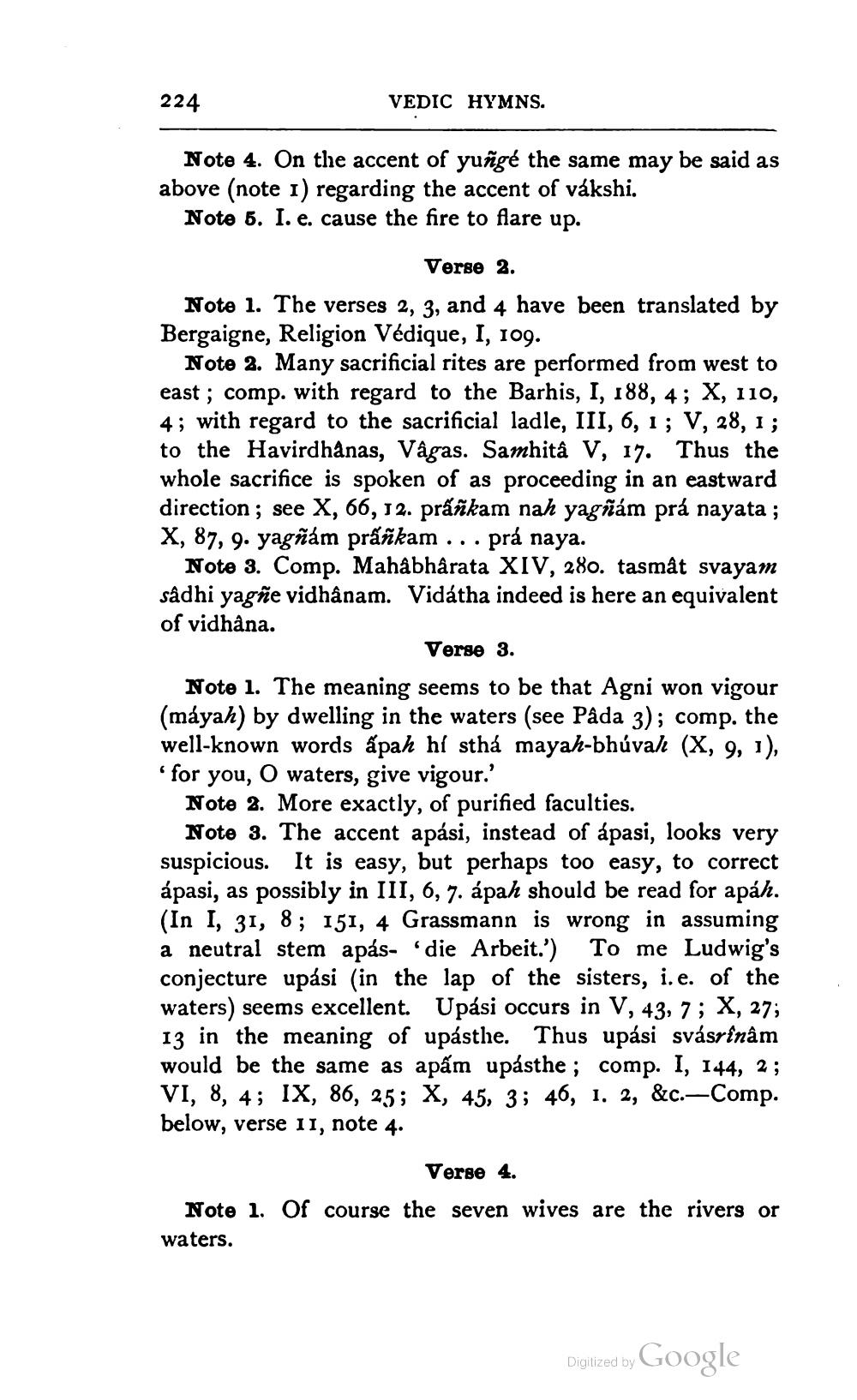________________
224
VEDIC HYMNS.
Note 4. On the accent of yungé the same may be said as above (note 1) regarding the accent of vákshi.
Note 5. I. e. cause the fire to flare up.
Verse 2 Note 1. The verses 2, 3, and 4 have been translated by Bergaigne, Religion Védique, I, 109.
Note 2. Many sacrificial rites are performed from west to east; comp. with regard to the Barhis, I, 188, 4; X, 110, 4; with regard to the sacrificial ladle, III, 6, 1; V, 28, 1; to the Havirdhanas, Vâgas. Samhita V, 17. Thus the whole sacrifice is spoken of as proceeding in an eastward direction ; see X, 66, 12. prankam nah yagñám prá nayata ; X, 87, 9. yagñám práñkam ... prá naya.
Note 3. Comp. Mahâbhârata XIV, 280. tasmåt svayam sâdhi yagñe vidhanam. Vidátha indeed is here an equivalent of vidhana.
Verse 3. Note 1. The meaning seems to be that Agni won vigour (máyah) by dwelling in the waters (see Pada 3); comp. the well-known words ápah hi sthá mayah-bhúvah (X, 9, 1), ' for you, O waters, give vigour.'
Note 2. More exactly, of purified faculties.
Note 3. The accent apási, instead of ápasi, looks very suspicious. It is easy, but perhaps too easy, to correct ápasi, as possibly in III, 6, 7. ápah should be read for apáh. (In I, 31, 8; 151, 4 Grassmann is wrong in assuming a neutral stem apás- 'die Arbeit.) To me Ludwig's conjecture upási (in the lap of the sisters, i.e. of the waters) seems excellent. Upási occurs in V, 43, 7; X, 27; 13 in the meaning of upasthe. Thus upási svásrînâm would be the same as apám upasthe ; comp. I, 144, 2; VI, 8, 4; IX, 86, 25; X, 45, 3; 46, 1, 2, &c.—Comp. below, verse 11, note 4.
Verse 4. Note 1. Of course the seven wives are the rivers or waters.
Diglized by Google




